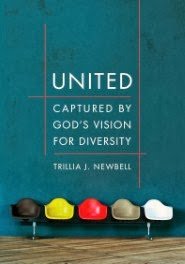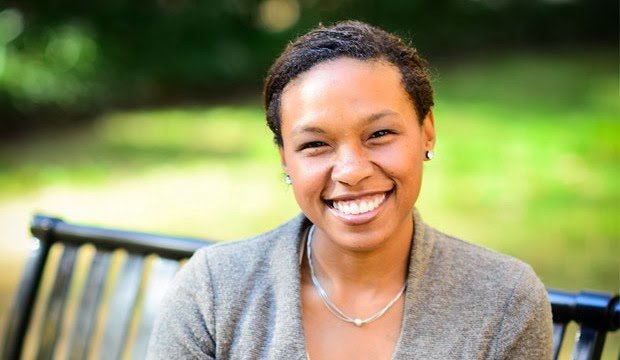
Blog & Resources
Looking for my thoughts on everything from bioethics to movies? You came to the right place. And while you’re here, check out my free downloadable resources.
Sign up to be notified when new posts release.
Swimsuit Season: A guest post
Last week I did something that many women do around this time of year. A spring ritual full with strong inhales to imagine an ideal and deep sighs once the discouragement of reality sets in.
You see, I was going on a weekend trip to the lake. So the time had come. The time had come to dig my swimsuits out from the infamous bottom dresser drawer. The time had come to discover what still fit. I dreaded this day. I procrastinated until the night before our trip, and I only had the garments purchased for my pre-pandemic, pre-multiple quarantines, pre-getting-laid-off then-hired-then-quitting-that-job body. They were bought for a summer of freedom that now feels foreign, and I worried they could no longer hold the version of me that exists today.
I remember every year of this ritual going back to sixth grade, and I can count on exactly two fingers how many times I walked away feeling good about myself. One was in college, after months of unhealthy dieting. The other? Last Thursday. So what changed?
Hint: not my BMI.
Something different happened. My mindset changed. I didn’t realize that it had until I stood there, in front of my mirror, smiling. My stomach and my cellulite and my pale skin didn’t worry me anymore. They encouraged me.
My stomach: evidence of my newfound love for cooking, and the beginnings of a relationship with a man who buys the chocolate bar at the register, then gives me half once we get in the car. That makes me smile.
My cellulite: a reminder that 80–90 percent of women have the same dimples I do. My cellulite stands as evidence to that heritage, the history of women before me who lived strong, brave, adventurous lives, even with textured fat on their thighs. That makes me smile.
My pale skin: evidence of a year keeping myself and others safe. A year staying home and building deeper relationships with the people under my roof. Those friendships make me smile.
I discovered that my body no longer serves as a tool to be whittled down to perfection, but rather as a treasure chest—ornate and beautiful in its own right but inside containing something of far greater value.
Avery Ochs lives in Denton, Texas, and is a student at Dallas Theological Seminary.
Author Q&A with Elizabeth Oates
Elizabeth Oates served as my intern more than ten years ago. Time flies! Today she's a multi-published author with a new book out. She took some time recently to answer some questions.
SG: Elizabeth, I can’t believe we have known each other for fifteen years now. You came to seminary in 2001, and graduated in ‘05. Tell me what you have been doing since then.
EO: My husband and I moved from Dallas to Waco, where we’ve had three biological kids, ages 10, 8, and 6. We also have a sweet foster daughter who is 16 months old, and we are on track to adopt her sometime this spring. In between raising babies and running carpool, I’ve been writing, blogging, and speaking. I wrote my first book, Dealing with Divorce: Finding Direction When Your Parents Split Up, in 2009. And I just released my second book, If You Could See as Jesus Sees: Inspiration For a Life of Hope, Joy, and Purpose.
SG: It sounds like you juggle a lot between your family and your writing, which can intimidate some people. Do you find that others compare themselves to you? If so, how do you deal with that?
EO: Actually, I talk a lot about comparison, and feeling inadequate, incompetent, and discontent in my new book. The irony is that people can look at my life and think I have it all together, yet I look at others' lives and fall into the same trap.When people say to me, “I don’t know who you do it,” I tell them “You only see what I do. You don’t see what I don’t do.” And the list of what I don’t do is long: I don’t sew, I don’t garden, I don’t do oils, I don’t cook anything with more than four ingredients, I don’t do a book club. I have simplified my life to a few things, and I go deep there.If we can focus on the few things God has called us to and do those well instead of comparing ourselves to what others are doing, I think we’ll find God will bless our efforts in whatever capacity we serve.
SG: What is your hope for this new book?
EO: My audience is women. And my ultimate hope is that women will stop seeing themselves as the world sees them, or even through their own skewed lens, and they will see themselves as Jesus sees them.
You can order If You Could See as Jesus Seesonline. But you also might win it here. Subscribe to this blog, or leave a comment below, and I'll draw the name of a winner on Jan. 29. Guys, maybe your local library would appreciate a copy. Or a special female in your life?
United: God's Vision for Diversity
 A:By building into diverse relationships, we display the reconciliation andredemption of Christ to a world that is broken and divided. True unity is foundfirst through being reconciled to God and then to each other. To walk in thatunity arm in arm with people of every tribe and race is to declare to the worldthat Christ’s blood is enough for the fight for racial reconciliation.Additionally, diversity displays a true understanding of the grace of God.Personally, God was working in me what I believe is clearly displayed throughScripture—diversity benefits the church, displays the last days, demonstratesthe power of the gospel, and glorifies God.
A:By building into diverse relationships, we display the reconciliation andredemption of Christ to a world that is broken and divided. True unity is foundfirst through being reconciled to God and then to each other. To walk in thatunity arm in arm with people of every tribe and race is to declare to the worldthat Christ’s blood is enough for the fight for racial reconciliation.Additionally, diversity displays a true understanding of the grace of God.Personally, God was working in me what I believe is clearly displayed throughScripture—diversity benefits the church, displays the last days, demonstratesthe power of the gospel, and glorifies God. A:A practical way to begin building diversity in your church is to build itwithin your family through teaching and learning about different cultures andethnicities throughout the year. Learning the history of other culturescan assist you in understanding the perspective of other cultures. Asyou learn with your children, don’t limit your knowledge to textbooks andmini-biographies. Get creative and cook a new meal. Or introduce your family tothe culture and music of those who are different from you. Invite otherChristians into your home for lunches, dinners, or parties. Include members ofyour church or your neighbors. Find those who are different from you, take aninterest in their lives, and invite them over for a meal.
A:Yes. Seeing the importance of diversity in Scripture should make us want toexplore how we can emulate this today. Ultimately it’s all about His glory onthis earth and reflecting Him to a broken world. I hope you’ll also be capturedby what I believe is God’s vision for diversity. Again, for me it goes back toGod’s Word. I find that the picture given for churches seems to be one made upof multiethnic, multicultural, and economically varying individuals. Diversityis worth having, because diversity is about people, and people are worthfighting for. If God is mindful of mankind, shouldn’t we be (Psalm 8:3–4)?
Is Racism Still a Problem?
Identity
Lately some of my friends and I have been talking about identity and integrity. Is identity fluid, and if so, where do we draw the lines? Is it okay to text or IM passing yourself as someone else? Is it okay to have an alternate identity on Facebook? Is there ever a legitimate reason to have a sex change? Is it okay to change your name if you dislike the one you have? Is it okay to use a male avatar for yourself if you're a female or vice versa? Is gender really an identity?
As part of this discussion, my friend Rhonda send me this clip from "Friends." Ha!
Mistaken Identity
Where do you get your identity? At the Tapestry site, check out my blog post in which I explore this question.




